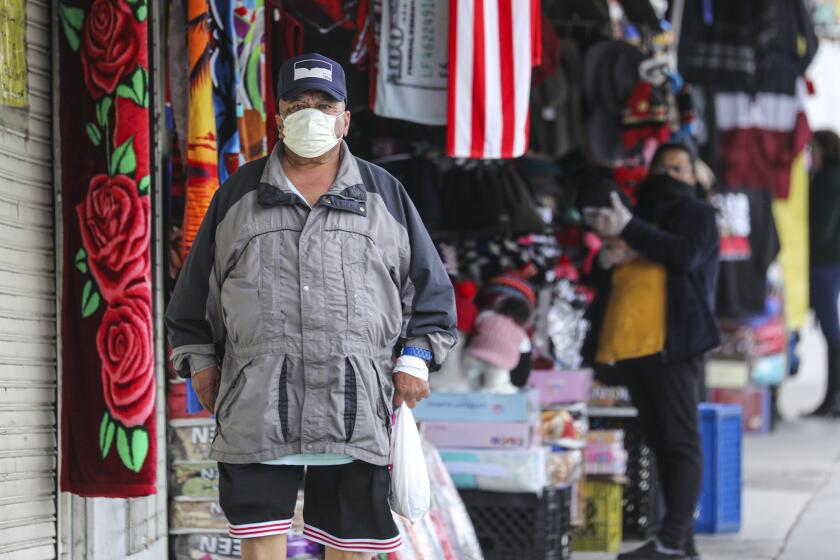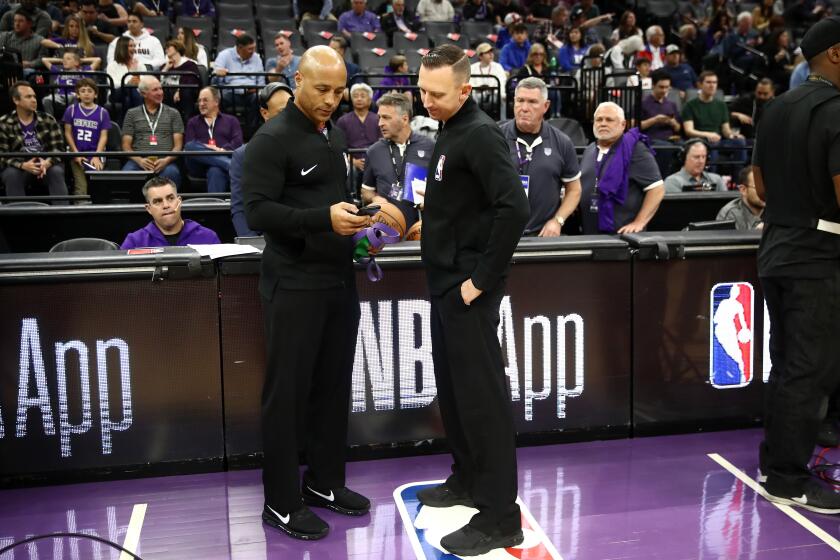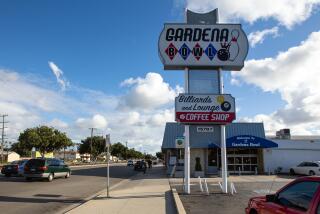Coronavirus is rapidly changing the way we live in California
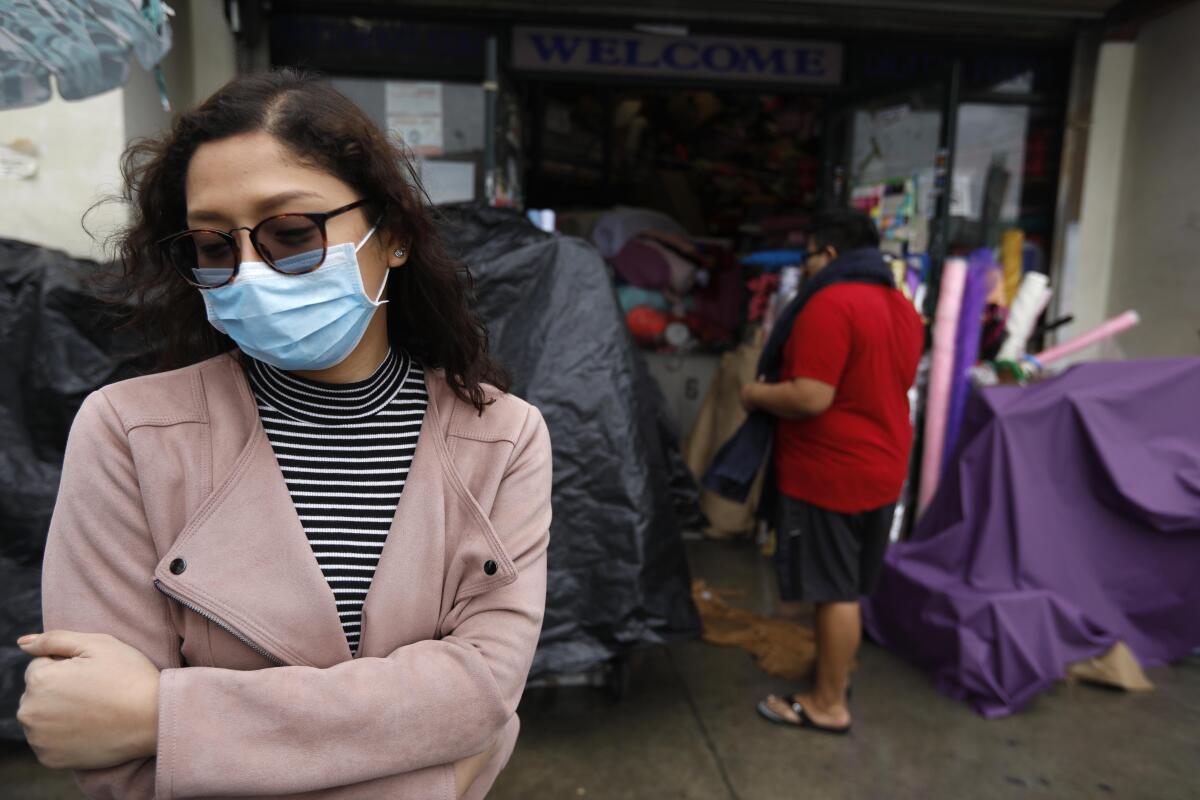
- Share via
Even at a Bay Area tech company that offers a phone system for telecommuting, dozens of employees still had to come in to the office every day.
That is, until the novel coronavirus came to California.
Late last week, Craig Walker, the chief executive of Dialpad, fired off an email to his 490 employees in the U.S. and abroad detailing a mandatory work-from-home policy and forbidding travel and conferences “until further notice.”
“If you want to roll the dice on your personal travel, that’s one thing, but we won’t make or allow you to do it for work travel,” Walker wrote.
As the coronavirus outbreak, which the World Health Organization called a pandemic for the first time Wednesday, has spread in recent weeks across the Golden State, the vast majority of people have not yet had to dramatically alter their routines. Change has come in the form of telecommuting for work, shortages of hand sanitizer and toilet paper, canceled vacations.
This is now the era of “social distancing,” the term officials have coined to encourage people to stay six feet from others. Coachella has been postponed, (“Won’t somebody think of the Instagram Influencers!” one man snarked on Twitter), the NBA has suspended its season until further notice, and a growing number of universities have suspended in-person classes.
As the disease’s toll continues to grow, the future looks increasingly unclear, with countless possibilities for disruption on the horizon.
One thing is certain: Coronavirus cannot be ignored.
In the Santee Alley outdoor shopping center in downtown Los Angeles, Greyly Sanchez made her way to the back of a cosmetic store on Monday and noticed something just a little off.
Get the latest coronavirus updates from our staff in California and around the world.
Usually, an employee comes to help her. This time, a manager watched her but stayed away.
Sanchez, 19, was wearing a blue mask and had decided to venture out to shop because she figured the rain would keep crowds at bay. Although it was subtle, she knew people were watching her because of the mask. At other stores, too, workers kept their distance.
“I let them think whatever they want,” she said. “I’m looking out for myself.”
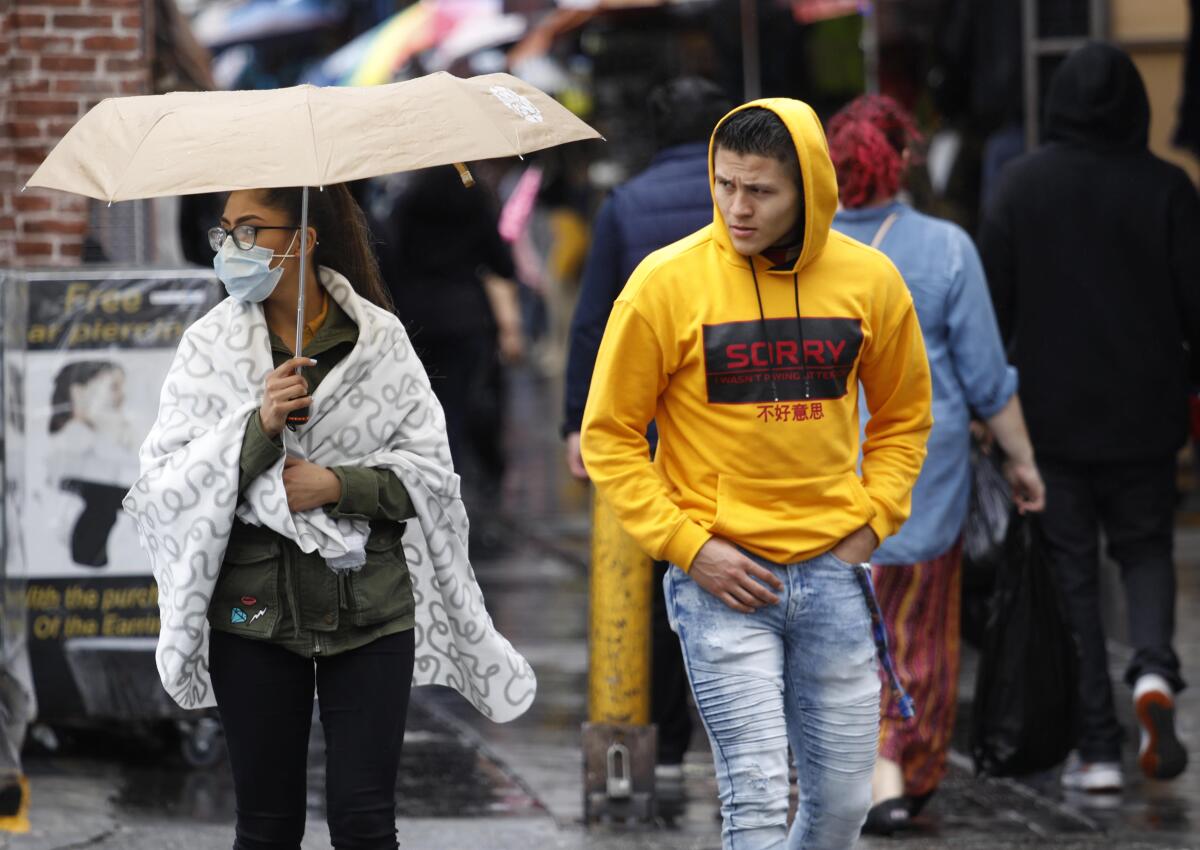
At home, Sanchez has been stockpiling dry goods, soap and shampoo. She doesn’t plan to wall herself off from the world.
“I’m a little on alert,” she said. “But I think it’s good to be out.” A few blocks away, Charm Resuello, 26, also wore a blue mask as she bought flowers. She was aware that experts have advised healthy people to not wear masks to keep up the supply for medical professionals, but she took comfort in it.
Recently, she has had a hard time trying to find bottled water, so she bought a filter for her faucet. She feels the stares when she ventures out in her mask.
“Whenever you give a little cough, everybody looks at you like they want to stay away,” she said. “It’s understandable. I would have the same reaction.”
In Long Beach this week, William Bryant was preparing his laundry at Super Suds and wasn’t thinking about coronavirus until a text message with a surprising job offer popped up on his phone.
An Orange County company, apparently hoping to ward off coronavirus, was looking for two people to wipe down office equipment and surfaces with Clorox wipes for the next two months.
“Lots of walking but very pleasant environment,” the offer read. “Pay is $15 an hour and hours are 6 p.m. to midnight, Monday through Friday.”
Bryant, a 33-year-old Marine Corps veteran who works at Super Suds, said he would never take that job.
“It felt very, very, very strange to be receiving a job offer that’s never been offered before,” Bryant said. “I was taken aback.”
On city buses and trains in Los Angeles — which already were swept, mopped and disinfected each night — cleaning crews have “strengthened” their regimen by paying more attention to high-touch areas on vehicles and in stations, like hand rails, hanging straps and ticket machines, said Metro spokesman David Sotero.
It may be weeks before Los Angeles transit officials can quantify whether ridership has dropped in a meaningful way.
U.S. stocks pared the worst of their coronavirus-triggered Thursday losses as the Federal Reserve sought to reassure traders. But then they fell again.
The vast majority of riders on the system have no access to a car and have no choice but to take public transit — so officials are pleading with citizens to wash their hands and stay home when they’re sick.
In the Bay Area, ridership on the BART commuter rail network has fallen 25% compared with two weeks ago, said spokeswoman Alicia Trost.
Riders have reported eerily empty trains and wide-open parking lots that normally fill up early.
The Bay Area has been the hardest-hit region of California amid the outbreak. Several counties have taken extraordinary measures to implement social distancing after it became clear the virus was spreading in the community, including banning mass gatherings of 1,000 or more people.
“The first week that the news broke, we had a great ridership week,” Trost said. “But once the big companies started to tell their employees to work from home — Twitter, Salesforce — the very next week, our numbers were down.”
As California called for a ban on gatherings of 250 or more people, Disneyland took the unprecedented action of announcing it will close the park through the end of the month.
BART is disinfecting trains daily and is still running a normal level of service.
“We serve healthcare workers and people who need to go to medical appointments, even if it’s not related to coronavirus, so it’s really important that we keep running and keep running at a full schedule,” Trost said.
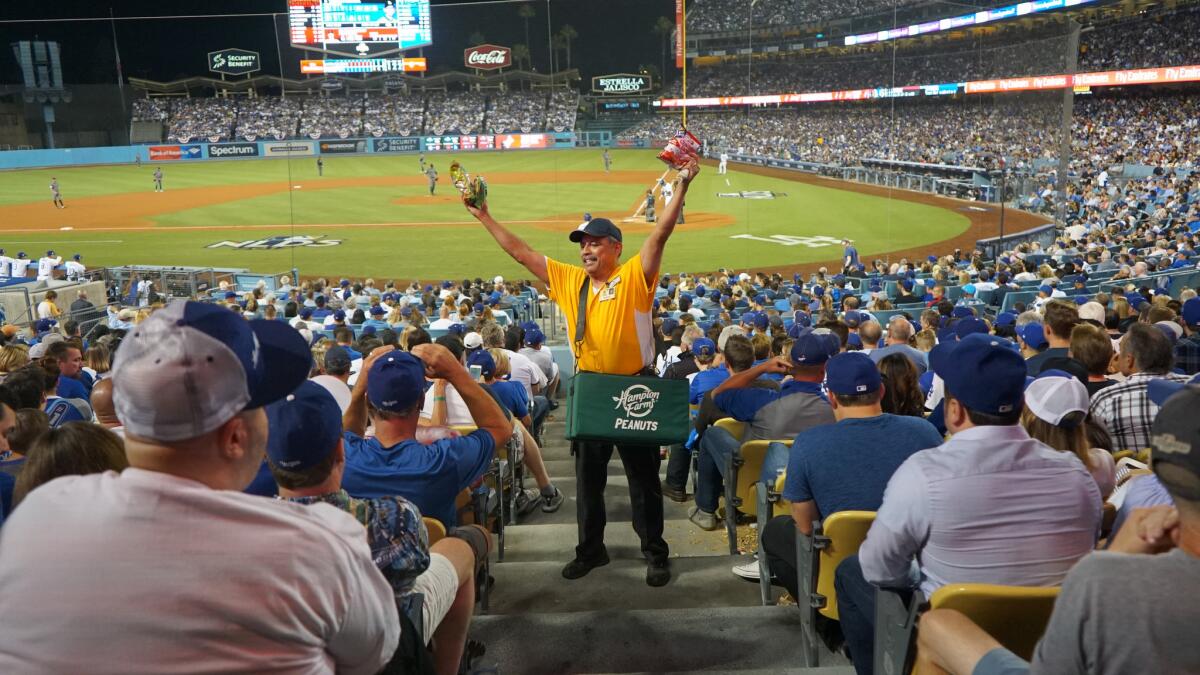
Back in Los Angeles, Robert Sanchez, who has worked as a peanut and churro vendor at Dodger Stadium for 46 years, said he’s “waiting on pins and needles” to see if the Boys in Blue will still open the season on March 26 with fans in the stands.
Major League Baseball has joined the NHL and Major League Soccer in closing locker rooms to reporters and limiting access to team facilities. But as of Wednesday, MLB had not called off remaining spring training games or postponed the start of the regular season.
Sanchez, a retired Los Angeles Unified School District carpenter, said he has a pension and “will never starve,” but it would sting to lose the extra income from hawking goobers because that’s what he and his wife use for vacations and the occasional trip to casinos in Las Vegas.
“That’s extra gravy on the potatoes,” he said. “It’s the fun money. I’m a lucky guy. But I’ll still say, ‘Dammit!’ you know?”
But then he started thinking aloud about working in the Dodger Stadium crowds amid the outbreak. Would it be safe to “handle all that sneezed-on money” and high-five “all those sweaty hands”? he wondered. Would he need to wear gloves? Would that help?
California’s growth will slow this year as unemployment rises and job creation weakens in the wake of the coronavirus outbreak, according to a UCLA forecast.
This week, Sanchez and his wife, Terry, canceled a planned July cruise to Alaska because they were supposed to have traveled aboard the Grand Princess ship, which docked this week in Oakland with at least 21 passengers who tested positive for the coronavirus.
Sanchez, of Duarte, and a friend had planned to go to the BNP Paribas Open at the Indian Wells Tennis Garden in Palm Springs this week, as they have done for the last eight years, but that was canceled Sunday.
He and Terry have stocked up on toilet paper and canned goods.
They have also started buying school supplies such as crayons and paper, in case the schools close and Terry, a retired teacher, has to start teaching their six grandkids from home.
“It’s not panic mode, or, ‘Hey, you’ve got to change your lifestyle’ yet, but it’s not going to get any better for a while,” Sanchez said. “It’s weird times right now.”
More to Read
Sign up for Essential California
The most important California stories and recommendations in your inbox every morning.
You may occasionally receive promotional content from the Los Angeles Times.
